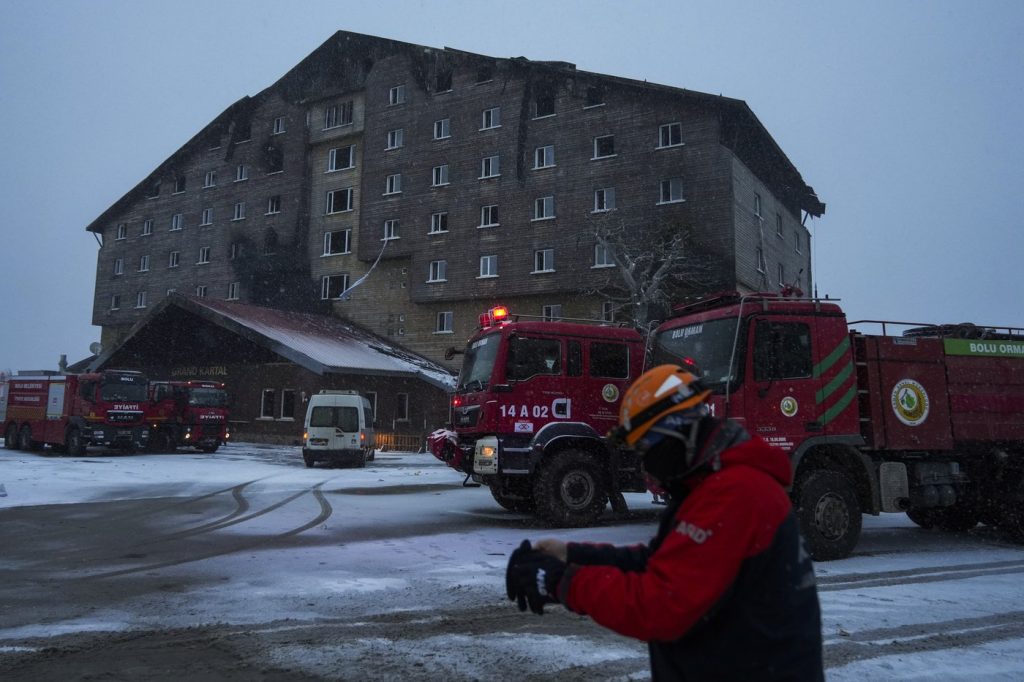KARTALKAYA, Turkey (AP) — A devastating fire erupted at the Grand Kartal Hotel, a 12-story establishment located at a renowned ski resort in the Koroglu mountains of Bolu province, on January 22, 2025. The tragedy unfolded in the early hours of the morning, around 3:27 a.m., as flames quickly engulfed the building, impacting at least 76 people and injuring 51 others. The incident occurred just before the beginning of a two-week winter break for schools, a peak time for hotel occupancy in the region.
Witnesses Esra Karakisa and Halime Cetin recounted their feeling of helplessness as they observed the chaotic scene from a nearby hotel. They described individuals trapped in smoke-filled rooms, some desperately pleading for assistance, while others faced the grim choice to jump from the heights in a bid to escape the flames. Cetin noted the horror of the situation: “There was no one around. They were calling for firefighters. They were breaking the windows. Some could no longer stand the smoke and flames, and they jumped.”
Amidst the crisis, officials reported that at least nine people had been detained, including the hotel owner, as part of an investigation into the cause of the fire. Authorities have assigned six prosecutors to look into the matter, particularly after it was revealed that the fire likely originated from the restaurant area on the fourth floor before rapidly spreading to higher floors.
The aftermath of the disaster led to national mourning, with flags at government buildings and Turkish diplomatic missions lowered to half-staff. Interior Minister Ali Yerlikaya confirmed that only 45 of the deceased have been identified, and one of the injured remains in serious condition. Among the 238 registered guests at the hotel, officials indicated that rescue efforts were complicated by the building’s precarious location on the side of a cliff.
In the wake of the tragedy, Tourism Minister Mehmet Nuri Ersoy mentioned that the hotel had undergone fire safety inspections in both 2021 and 2024, which reportedly showed no negative findings related to fire competence. Despite these assurances, the rapidity with which the fire spread raised serious concerns about safety measures in place.
Karakisa and her colleagues took immediate action to assist survivors, providing clothes and water, while other volunteers attempted to place mattresses below the windows to catch those who jumped. Baris Salgur, a cleaner from a nearby hotel, described his experience during the harrowing ordeal, saying, “They were saying, ‘Please help, we’re burning!’ We were trying to calm them down, but there was nothing we could do.” Salgur noted the difficult conditions that prevented them from offering effective help as they waited for the fire department to arrive.
Desperation escalated when onlookers witnessed a man on one of the upper floors, holding a baby and pleading for a mattress to cushion a possible jump. Tragically, while the fire department was able to rescue them, the baby succumbed to smoke inhalation.
This catastrophic incident highlights not only the urgency of fire safety in hospitality venues but also the dire consequences of inadequate emergency responses. The nation grapples with grief and the pressing need for accountability in the wake of such a substantial loss of life.










